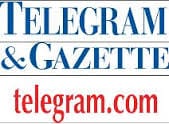
March 1, 2016
Worcester reports progress since race dialogues last summer
By Steven H. Foskett Jr. | Posted Feb. 29, 2016 at 10:45 PM
WORCESTER – The dialogues on race last summer included a healthy chunk of skepticism that any action would come of the federally-facilitated series.
City Manager Edward M. Augustus Jr. said Monday night the notion that the talks were “a lot of talk and very little action” was like fingernails on a chalkboard to his ears.
Mr. Augustus, addressing a community meeting organized by the Coalition Against Bias and Hate at Belmont AME Zion Church on Illinois Street, said there has been movement on quite a lot of issues raised throughout the series of talks. But he cautioned that those next steps cannot be taken by city government alone.
To that end, Mr. Augustus was joined at the meeting by several local groups and organizations that also reported what they have been doing since the dialogues to make the city a more inclusive place.
The city manager pointed to a host of actions the city has taken to deal with issues that came out of the voluminous amount of feedback gathered at the meetings. He introduced the city’s first chief diversity officer, Malika Carter, and highlighted the city’s new translation services.
Mr. Augustus said since the dialogues, every single police officer has received training in procedural justice and unconscious bias, and he talked about his visit last week to a crisis intervention training for police. He said the Police-Clergy Alliance has been reconstituted.
He said other initiatives, like the expansion of the Recreation Worcester program, will help create opportunities for young people that will also help the city push other goals forward.
Other agencies and local organizations Monday night have dealt with what they saw as important issues in other ways. Valerie Zolezzi-Wyndham, managing attorney for Community Legal Aid, said her group had been thinking about diversity and equity issues before the dialogues started, and have since made progress of several fronts. She said the organization has intentionally thought about how it can foster diversity at all levels. Better reflecting the community helps the organization better understand client needs, she said.
That self-examination has led to several strategies, including the hiring of an education attorney. Ms. Zolezzi-Wyndham said the education attorney has helped parents level the playing field when dealing with school issues, and she said the schools have been receptive to Legal Aid’s presence.
She said the organization also realized it was having trouble connecting with the local Southeast Asian community, and has since hired a Southeast Asian outreach attorney.
Timothy P. Murray, president and CEO of the Worcester Regional Chamber of Commerce, said his organization has undertaken several initiatives, including the creation of a minority professionals roundtable and business networking sessions for startups that emphasize access to capital, which Mr. Murray said tends to be an issue in communities of color.
Patricia L. Yancey, president of the Worcester NAACP, said her organization worked with David LeBoeuf at the Initiative for Engaged Citizenship in the fall to develop questions from the race dialogues that were put to political candidates during forums held leading up to the election.
Officials representing city schools, the Local Jobs Not Jails Coalition, the Shared Worlds Project, Muslim Community Link, the Center for Nonviolent Solutions, and the YWCA of Central Massachusetts also spoke Monday night. The lone voice of protest came from activist Gordon Davis, who remarked that the session did not include a single mention of the Black Lives Matter movement.
The Rev. Clyde Talley of Belmont AME Zion Church, who also chairs a subcommittee for the Coalition Against Bias and Hate, thanked the audience for continuing to stay involved.
Mr. Augustus said he can’t say the city has done everything it should to combat issues raised during the dialogues. But he said he also wanted the community to acknowledge that the city has made movement. That movement is what will keep people engaged, he said.

















































